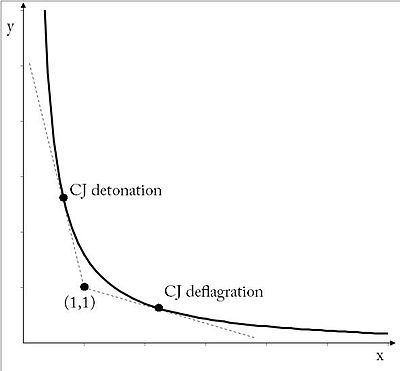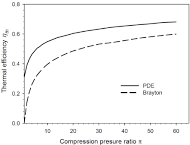Technology
We Produce Energy With Shockwave Compression
We aim to produce the world’s most efficient, and economical combustion generators. The form of fire used in today’s engines is not the most efficient. Deflagration, Fire1.0. There two distinct forms of fire, deflagration ([subsonic, pressure loss combustion]) or as we call it Fire1.0, and detonation (or pressure gain combustion) fire2.0. Deflagration is the less efficient form of fire used in today’s engines. Until now, efficiently harnessing the power of pressure gain combustion has proven elusive.
Our Innovation: a refined piston design capable of efficiently converting the momentum of a shockwave into mechanical energy. We couple the piston with a linear generator to produce electrical power.
Our Approach
Core Technology
 At the core of our technology is the fundamental science of the two modes of combustion. Existing combustion engines use the Chapman-Jouguet (CJ) deflagration process, in contrast to our engines that achieve the Chapman-Jouguet detonation state. Although these two CJ states release the same amount of fuel heat energy, as shown by the reactive Hugonoit curve, their different final states implies that one process is more efficient at performing work than the other. Although most current ideal engine cycle analysis using CJ deflagration to approximate the process as a constant pressure combustion process, in reality pressure decreases due to deflagration process, therefore reducing the efficiency. In contrast, engines like ours that achieve CJ detonation use a shockwave that increases the gas pressure by a factor of 40, before the fuel is consumed.
At the core of our technology is the fundamental science of the two modes of combustion. Existing combustion engines use the Chapman-Jouguet (CJ) deflagration process, in contrast to our engines that achieve the Chapman-Jouguet detonation state. Although these two CJ states release the same amount of fuel heat energy, as shown by the reactive Hugonoit curve, their different final states implies that one process is more efficient at performing work than the other. Although most current ideal engine cycle analysis using CJ deflagration to approximate the process as a constant pressure combustion process, in reality pressure decreases due to deflagration process, therefore reducing the efficiency. In contrast, engines like ours that achieve CJ detonation use a shockwave that increases the gas pressure by a factor of 40, before the fuel is consumed.
A common misnomer is that constant volume combustion engines such as in the otto-cycle have comparable efficiencies to pressure gain combustion (PGC) engines. Otto cycle engines are designed to utilize the CJ deflagration process and are therefore inherently less efficient than PGC engines.
Our generators are more efficient at all power levels
 The development of the first generation of modern jet engines by Frank Whittle elucidated that efficiency of these combustion engines based on the Brayton cycle were tied to their compressor pressure ratio. However improvements in compressors have been maxed out since the 1980’s, resulting in fractional percentage gains in recent years. In contrast, our PGC engines can do work without mechanical pre-compression, and are more efficient than conventional jet (Brayton cycle) engines, producing similar power levels.
The development of the first generation of modern jet engines by Frank Whittle elucidated that efficiency of these combustion engines based on the Brayton cycle were tied to their compressor pressure ratio. However improvements in compressors have been maxed out since the 1980’s, resulting in fractional percentage gains in recent years. In contrast, our PGC engines can do work without mechanical pre-compression, and are more efficient than conventional jet (Brayton cycle) engines, producing similar power levels.
Experimental Results
We are currently able to achieve significant efficiencies in our current engine prototype, and we aim to achieve 80% of predicted theoretical efficiency in the following months.
Flexible and Scalable Power Generation
The pressure gain combustor engine can be designed to operate with various types of fuels including liquid and gaseous fuels such as hydrogen and other hydrocarbon based fuels. The PGC engines can be scaled for various power levels ranging from 100 Watt to several hundred MegaWatts.
